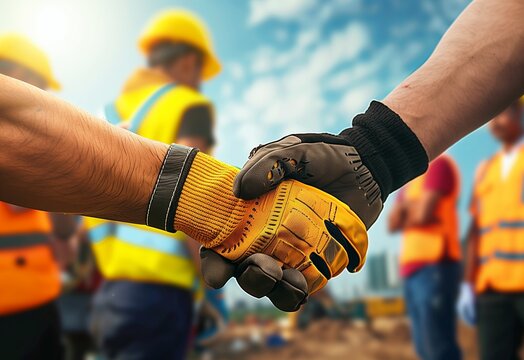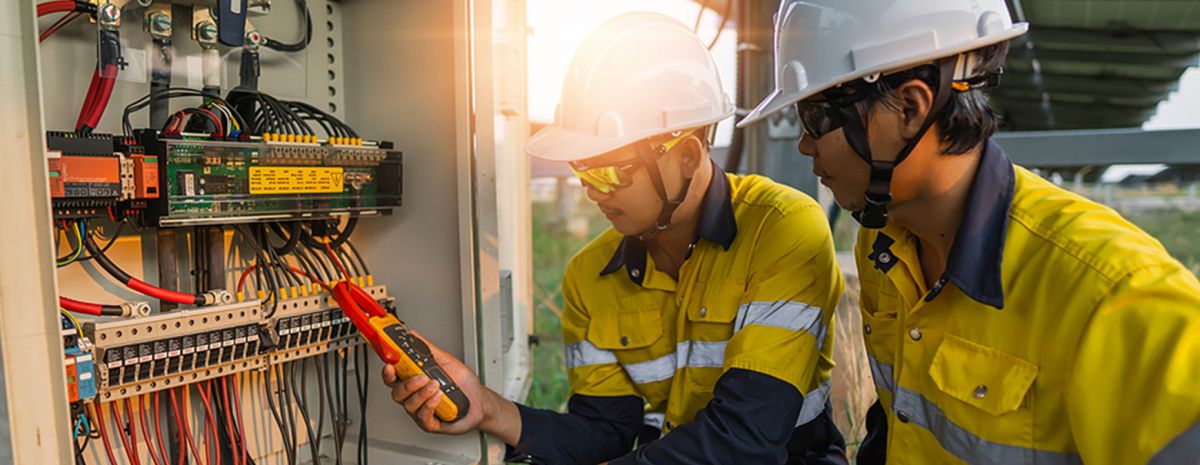If you work in the trades, you already know your body is your livelihood. Miss a few days because your back's shot or you can't grip properly, and you're not just uncomfortable, you're not getting paid. Most people think construction work automatically keeps you in shape. Sure, you're moving all day, lifting heavy stuff, crawling through spaces that weren't designed for humans. But research uncovers that the very activity that defines your job can wear your body down. A 2023 NIOSH study revealed tradesworkers face 23% higher cardiovascular risks than desk workers despite burning 3,000+ calories daily 12. So how do you stay strong enough to do the job without letting the job destroy you? Let's dive in.

Why Construction Jobs Demand Specialized Fitness
Your workday mostly consists of hauling materials, scrambling up ladders, and gripping tools in awkward angles. These physical demands of construction jobs create specific challenges:
- Force Meets Fatigue: Electricians and welders regularly grip 10+ pound tools with bent wrists, a combo shown in a 2022 ASCE report to spike forearm strain by 40% 3. Ever felt like your hands are on fire after drilling? That’s cumulative stress that generic gym routines ignore.
- Posture Pitfalls: Roofers bending beyond 45° for over 2 hours daily face 3x higher herniated disc risks 3. Imagine lifting drywall overhead after a morning of squats, your spine needs targeted support.
- The Health Paradox: Construction’s physical intensity doesn’t automatically equal health. A Johns Hopkins study found tradesworkers’ high BMI rates and cardiac risks stem from poor recovery, not laziness 1. Work activity stresses the body differently than controlled exercise.

Test Your Baseline: Are You Job-Ready?
Before deadlifting dumbbells, assess your capacity using methods mirroring real tasks:
- The Climb Test: Time how long you can climb a 10-foot ladder with a 25lb tool belt. This exposes leg stamina and grip endurance gaps, which are critical for roofers.
- Overhead Hold: Grab two 10lb weights (or water jugs). Hold them overhead until form breaks. If you did that under 2 minutes, your shoulders need work to handle piping installs.
- 90-Minute Simulator: Alternate 5 minutes of:
- Farmer’s walks (50lb sandbags)
- Squat-to-knee raises (mimicking floor-to-waist lifts)
- Plank with shoulder taps
Track when fatigue affects form. The exact moment injury risks spike 6.

Training That Translates to the Jobsite
Skip the mirror muscles. These exercises prep your body for actual work like concrete pour, roofing job, or tight crawl space.
- Deadlifts for Safe Material Handling: Electrician and powerlifter Luis Garcia swears by trap-bar deadlifts: “They taught me to lift with legs, not back and it cut my strains by half.” Focus on hip-hinge form over weight. Pro Tip: Place a PVC pipe along your spine during reps. If it tilts, reset your posture.
- Work Capacity Circuits: Try this 20-minute burner after shifts:
- Sandbag cleans (5 reps)
- Step-ups onto a scaffold (10/side)
- Resistance band pull-aparts (15 reps)
Rest 1 minute; repeat 4x. Boosts heart health without overtaxing joints.
- Farmer’s Carry Upgrade: Carry kettlebells upside down. The unstable grip mimics holding bulky drywall sheets, reinforcing forearm endurance.

Eating Like a Tradesman: Fuel Over Fads
Burnout starts at lunchbreak. Ditch the gas station burrito for:
- Breakfast: Greek yogurt + oats + peanut butter (500 cal)
- Site Snack: Tuna pouch + whole-grain crackers (300 cal)
- Dinner: 8oz chicken thighs + sweet potato + frozen veggies (700 cal)
 Hydration Hack: Add a pinch of salt to your 32oz water bottle. “It’s cheaper than Gatorade and kept me cramp-free installing HVACs in Phoenix,” says plumber Rita Nguyen.
Hydration Hack: Add a pinch of salt to your 32oz water bottle. “It’s cheaper than Gatorade and kept me cramp-free installing HVACs in Phoenix,” says plumber Rita Nguyen.
Move Better, Work Safer
Dynamic stretches aren’t just a wellness trend, they help you avoid getting hurt. Here’s how you do them:
- Pre-Shift:
- Leg swings (front/back, side-to-side)
- Foam roll lats and glutes
- Banded shoulder rotations
- Post-Shift:
- Doorway pec stretch (30 sec/side)
- Child’s pose with deep breathing
- Wrist flexor release using a massage ball
Roofer Jamal Wright credits these routines with saving his career: “After bulging discs, I thought I’d retire. Now at 54, I outwork the newbies.”

Survival Gear Essentials
- Boots: ASTM F2413-18 rated with met guards (think: Timberland PRO)
- Knee Pads: Gel-insulated for crawl spaces
- Tool Belt: Load-distributing suspenders

The Bottom Line
Your job’s physical demands aren’t optional, but burnout is. The guys who last decades in the trades aren't just naturally tougher, they're smarter about taking care of themselves. But you don't need to completely change your entire routine. Start with something small: Add 10 minutes of grip work three nights a week. Your hands and forearms will feel the difference, and when you're 60 and still swinging a hammer pain-free, you'll be glad you did.



